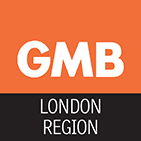Nearly half of SMEs believe society will stop using cash by 2024

Nearly half of SME decision makers in the UK and Ireland believe that society will be at least virtually cashless by 2024, according to research by Close Brothers Invoice Finance.
In total, 47% think we will live in a cashless or virtually cashless society. A further 36% believe that the split between cash and card will remain the same and only 17% think the use of cash will increase.
Even today, digital channels are the most common way for businesses to be paid. Two fifths (39%) of SMEs say they mainly take payments online using cards and 13% say chip and pin currently comes out on top. In comparison, a quarter find that cash is used most frequently.
Many businesses recognise the benefits of using electronic payment methods, with over half (56%) reporting that using less cash makes them feel safer. Considering the positives of a cashless company, many feel that payments are more secure (40%) and that the threat of physical theft is reduced (23%). Nearly a third (31%) also say the technology makes accounting easier.
However, SMEs also note that cashless business could create some challenges. The top concerns are online security and hacking issues (53%), technology failures (33%) and that new technology could make immediate sales more difficult to complete (9%).
David Thomson, CEO of Close Brothers Invoice and Speciality Finance, said:
“Historically, SMEs decisions about whether to offer electronic payment options have often been based on fees and the management of digital processes. However, today, businesses could risk being left behind if they do not invest in these systems.
“The way people pay for products and services is changing. Many customers now expect to be able to pay by card, whether online or in person, and not offering this option could make it more difficult for smaller companies to thrive.
“As cash is used less frequently and bank branches close, electronic payments could offer additional convenience for both SMEs and their customers, as well as providing an opportunity for financial inclusion in a perpetually developing marketplace.”




